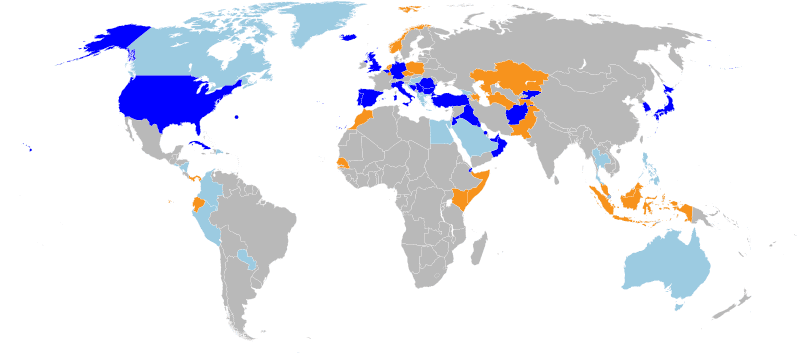We Still Don’t Need Higher Military Spending

Reihan Salam offers up another version of his earlier, unpersuasive case for more military spending:
The case of Russia helps illustrate why it is foolish to compare U.S. military spending to that of other countries. And Russia is hardly alone in modernizing its military in ways that threaten global security. China has been pursuing a similar strategy in East Asia, which poses similar challenges to the U.S. and its Pacific Rim allies. The U.S. military must be capable of overcoming threats not just in its own neighborhood, but in regions far from home.
In other words, the case for more military spending depends heavily on assuming that the U.S. has to be able to “overcome threats” from regional powers on their doorstep while expecting our allies to do as little as possible for their own security. If the U.S. weren’t trying to do so much all around the world, and if our allies did more of their share, the U.S. could easily get by spending much less on our military than we do now. Salam assumes that the U.S. has to be the one to contain and deter regional threats, but it’s a circular argument: it’s our responsibility because we’re the only ones who can, and we have to be the ones who can do it because it’s our responsibility. Advocates for more military spending never explain why the security of Europe shouldn’t primarily be the responsibility of our European allies. The European example shows that it’s foolish to continue to subsidize the defense of wealthy European allies seventy years after the end of WWII and a quarter-century after the end of the Cold War. The same goes for East Asia. Our allies in Europe and Asia have the means to provide much more for their own defense, so the U.S. doesn’t have to keep being the one assuming so many of these costs and responsibilities. As long as the U.S. continues to offer our allies the opportunity to “cheap ride,” our allies won’t do as much as they could and should do for themselves. Right now, they have no incentive to do that, because they assume that the U.S. will simply keep spending more so that it is unnecessary for them to do so. Further increasing our already excessive military budget gives our allies no incentive to do more, and it dangerously deepens our allies’ dependence on the U.S.
Comments